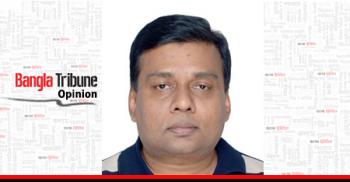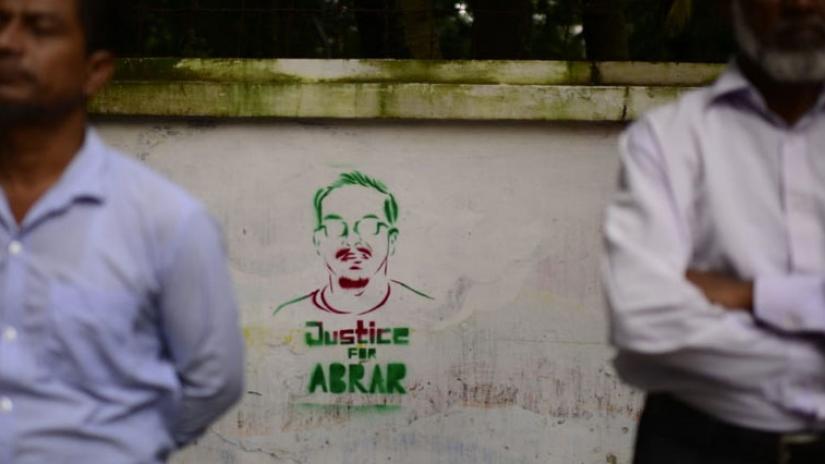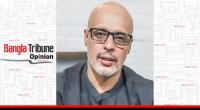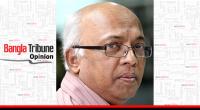 Having read the emotion-laden accounts of divided opinions on the primacy of student politics in our campuses, especially in the aftermath of BUET student Abrar Fahad’s brutal death, it’s necessary to discuss the issue from an entirely national-level educational perspective.
Having read the emotion-laden accounts of divided opinions on the primacy of student politics in our campuses, especially in the aftermath of BUET student Abrar Fahad’s brutal death, it’s necessary to discuss the issue from an entirely national-level educational perspective.
Let’s see first what the statistics has to say about the number of universities in our country. We have right now about 145 universities, of which around 100 are private universities while the number of public universities is 45. It is a well-known fact that either student or teachers’ politics are not allowed in private university campuses. In fact, these universities came into existence in view of the deteriorating political situation in the campuses and for preventing the siphoning-off of the capital to foreign countries. Since then, if not all, some private universities are thriving and have become secure places for international standard education for the offspring of our social and political elites.
So, debates about student politics may be confined to public universities only. Even in some public universities, the Khulna University for instance, or in a couple of international universities like the Asian University for Women, campus politics is not permitted. If we take into account the arguments of the advocates of student politics, we can safely say that they are, in fact, arguing that only some public universities and colleges would be the proper places for student politics and from where they expect that our future social and political leadership would mature.
These sorts of arguments make little sense for a number of reasons. While our major public universities are engrossed in politics and lagging far behind in creating a truly academic atmosphere, some major private universities are making great strides in ensuring proper academic culture and contributing to country’s much-needed human resource development. This is reflected in recent research which demonstrates the widening gap between private and public university graduates in terms of the availability of jobs.
A recent research by the Bangladesh Institute of Development Studies (BIDS) shows that the rate of employment is higher at 44 percent among private university graduates than public university graduates at 32 percent. Private university graduates are more likely to bag multinational jobs as they get more multicultural training than public university graduates.
Proponents of student politics become nostalgic remembering the contributions of university politics during the Pakistani rule or military period during the post-independence period. But most of us are unaware that massive changes have taken place in recent years in higher education due to globalization, communication revolution and the prevailing neo-liberal economic outlook.
The globalisation of higher education is taking place and most post-colonial societies are delinking campus politics from national-level politics in order to survive in this complex knowledge-industry dominated environment. No wonder when we see even a country like Uganda, or war-torn countries like Iraq and Lebanon have made good their places in the club of the top one thousand in the recently declared Times Higher Education (THE) rankings, any of our universities failed to get an entry in that elite club.
New ideas of educational administration in the last one or two decades like innovative course curriculum, extended credit hours, ranking systems, accreditation, impact factor of journals etc. have changed the traditional ways of teaching and learning in the higher educational institutes.
 A university must be ranked well and accredited and respected globally for ensuring jobs for its graduates in multinational companies, and for higher education in developed countries. Of late, the quality of our higher education is being questioned in international media and if the process of politicization continues in the universities, our university programmes may be devalued in developed countries. The academic load is very rigorous for any quality university program nowadays leaving very little space for either students or teachers to actively engage themselves in full-time politics.
A university must be ranked well and accredited and respected globally for ensuring jobs for its graduates in multinational companies, and for higher education in developed countries. Of late, the quality of our higher education is being questioned in international media and if the process of politicization continues in the universities, our university programmes may be devalued in developed countries. The academic load is very rigorous for any quality university program nowadays leaving very little space for either students or teachers to actively engage themselves in full-time politics.
Some of the private universities are catching up and are trying to internationalize their universities making quality appointments and implementing long-term strategic planning. But politicization of work or political appointments in public universities are hindering the progress of these universities where students are believed to be more talented.
For instance, the BRAC University, one of the top-ranking private universities of Bangladesh, has recently advertised for many diverse top educational leadership positions, something unprecedented in Bangladesh. This is in line with the management strategy of top global universities in order to heighten their image and ranking.
The profile of its newly-appointed vice-chancellor (VC) is quite intriguing, unmatchable even in a regional context. A very high-profile academic with global experience, the VC has a PhD in Economics from MIT, another PhD in Electrical Engineering and Computer Sciences from the University of California, Berkeley. He also has a master’s in Public Administration from Harvard, an MBA from Yale, and a BS in electrical engineering from National Taiwan University. Other private universities are following suit through appointing such top-quality management professionals.
North-South University, another top-ranking private university, recently organized a very prestigious international conference on the Rohingya crisis, in collaboration with UNHCR that hit the headlines of the national and international media.
Universities like Independent University, Daffodil International University or University of Liberal Arts (ULAB) are also bringing in noted literary figures, academics in various symposium and conferences at regular intervals. We often see these events are highlighted in the media while the activities of public universities as published in the media are VC’s corruption and nepotism, teachers’ politics, student violence etc.
If unbridled liberty is permitted in the name of politics in public university campuses, the quality of education would suffer and the main victims would be the students from lower and middle-class strata. We want the students to be politically sensitive, but we do not want them as political change-makers during their period of study. We do not want those talented students of our public universities to become marginalized in terms of knowledge acquisition, the availability of jobs and from getting other opportunities, including foreign scholarships.
Students must get training in politics, but the practice ground should be in the form of student union or student government in the campuses. As adults, if they want they can also associate themselves with political parties outside of the university premises, but not as a member of any university-based offshoot organization of any major political party.
Md. Shamsul Islam is the chief executive officer of private think tank Bangladesh Center for Research and Communication (BCRC). He can be reached at [email protected].


